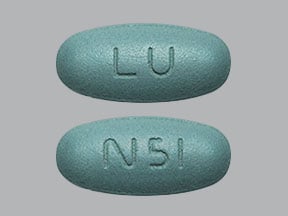
Abacavir-lamivudine-zidovudine Coupons & Savings Card – Discount Prices from $690.39
Generic for: Trizivir
My prescription
Edit
300-150-300MG, Abacavir-lamivudine-zidovudine (30 Tablets)
Select pharmacy

CVS
$730.77
COUPON PRICE
Walmart
$690.39
COUPON PRICE
Walgreens
$753.88
COUPON PRICEAbacavir-lamivudine-zidovudine savings card
Show this card to your pharmacist
Walmart
$690.39
BIN
ID
PCN
GRP
019876
LHECF8315E
CHIPPO
LHX
Powered by
More prescriptions for hiv treatment
More prescriptions for hiv treatment
Abacavir-lamivudine-zidovudine dosage forms
Dosage Quantity Price from Per unit 300-150-300MG 30 Tablets $690.39 $23.01 300-150-300MG 60 Tablets $1385.78 $23.10 300-150-300MG 90 Tablets $2081.16 $23.12
| Dosage | Quantity | Price from | Per unit |
|---|---|---|---|
| 300-150-300MG | 30 Tablets | $690.39 | $23.01 |
| 300-150-300MG | 60 Tablets | $1385.78 | $23.10 |
| 300-150-300MG | 90 Tablets | $2081.16 | $23.12 |
Abacavir-lamivudine-zidovudine Warnings
This medication contains important safety information that you must consider before use. Please carefully review the following points and consult your healthcare provider if you have any questions or concerns.
Allergic Reactions: Abacavir, a component of this medication, can cause severe, potentially fatal allergic reactions, typically within the first six weeks of treatment. A genetic test (HLA B5701) is necessary to determine your risk. If the test indicates a high risk or if you have a history of allergic reaction to this medication, you must avoid using it. Look out for symptoms such as rash, itching, swelling, severe dizziness, trouble breathing, fever, extreme tiredness, nausea, vomiting, diarrhea, stomach pain, muscle aches, sore throat, mouth sores, or cough. If you experience these symptoms, stop taking the medication immediately and seek medical attention.
Blood and Bone Marrow Concerns: The zidovudine in this medication can impair bone marrow function, leading to anemia and a weakened immune system, especially in those with advanced HIV. Regular blood tests are required to monitor your blood cell counts. If you experience unusual tiredness, fast breathing, pale skin, or signs of infection, seek medical help promptly.
Muscle Issues: Prolonged use of this medication may lead to muscle pain or weakness. If you develop unexplained fatigue, muscle pain, or weakness, contact your healthcare provider immediately.
Liver Problems: This medication may rarely cause severe liver issues, including lactic acidosis. Women and obese patients are at higher risk. Symptoms include nausea, vomiting, stomach pain, unusual tiredness, dark urine, yellowing of the eyes or skin, deep or rapid breathing, and drowsiness. Discontinue use and seek emergency medical attention if these symptoms occur.
Hepatitis B Concerns: If you have hepatitis B and HIV, stopping this medication without guidance may worsen hepatitis symptoms. Consult your doctor before discontinuing use, and ensure regular monitoring of liver tests after stopping.
Immune Reconstitution Syndrome: As your immune system recovers, it may trigger inflammation while fighting infections. Notify your healthcare provider if you experience fever, difficulty breathing, or abrupt health changes after starting this medication.
Heart Attack Risk: There may be an increased risk of heart attack, particularly in individuals with high blood pressure, high cholesterol, or diabetes. Discuss your medical history and current medications with your healthcare provider.
Fat Redistribution: Some patients may experience changes in body fat distribution, such as increased fat in the abdomen and upper back, with decreased fat in the face, arms, legs, and buttocks. Switching medications may alleviate this, though changes may not be fully reversible.
If you suspect an overdose or experience severe reactions, seek emergency medical assistance immediately. Always inform your healthcare provider of any conditions or medications you are taking to avoid adverse interactions.
Abacavir-lamivudine-zidovudine Side Effects
Common side effects:
- Nausea
- Vomiting
- Headache
- Tiredness
- Fatigue
- Diarrhea
- Fevers
- Chills
- Depressed mood
Less common but important to monitor:
- Muscle pain
- Rash
- Anxiety
- Cold or flu-like symptoms
Serious side effects:
- Unexplained weight loss
- Severe tiredness
- Persistent muscle aches
- Severe headaches
- Joint pain
- Numbness or tingling in the extremities
- Vision changes
- Signs of infection like fever and swollen lymph nodes
- Symptoms of an overactive thyroid such as irritability and a rapid heartbeat
- Pancreatitis
- Guillain-Barre syndrome
- Changes in body fat distribution
Abacavir-lamivudine-zidovudine Interactions
Interactions with high risk of serious adverse effects and should be avoided:
- Ganciclovir, Trimethoprim, and certain cancer chemotherapies like doxorubicin (drugs that may decrease bone marrow function or lower blood cell counts).
- Rifampin
- Valproic Acid
- Clarithromycin
- Emtricitabine
Interactions with moderate risk that may require dose adjustment, closer monitoring, or timing changes:
- Orlistat
- Probenecid
- Ribavirin
- Sorbitol
- Stavudine
- Cabotegravir
- Dapsone
- Doxorubicin Hydrochloride Liposome
- Flucytosine
- Horsetail
- Pexidartinib
- Pyrazinamide
- Pyrimethamine
- Vinblastine
- Vincristine
- Vincristine Sulfate Liposome
Interactions with low risk that usually do not require a change in therapy:
- Acetaminophen
- Fluconazole
- Interferon Beta-1a
- Methadone
- Nelfinavir
- Rifabutin
- Rifapentine
- Tipranavir
Is Trizivir discontinued?
Yes, Trizivir has been discontinued. It is important for patients who were taking Trizivir to consult with their healthcare provider to discuss alternative treatment options.
What is the generic name for Trizivir?
The generic name for Trizivir is abacavir, lamivudine, and zidovudine.
Using the SaveHealth discount card, what is the price of Abacavir-lamivudine-zidovudine without insurance?
Using the SaveHealth discount card, the price of Abacavir-lamivudine-zidovudine without insurance is $690.39.
What is the price of Abacavir-lamivudine-zidovudine at CVS?
The price of Abacavir-lamivudine-zidovudine at CVS is $730.77.
What is the price of Abacavir-lamivudine-zidovudine at Walgreens?
The price of Abacavir-lamivudine-zidovudine at Walgreens is $753.88.
What is the price of Abacavir-lamivudine-zidovudine at Walmart?
The price of Abacavir-lamivudine-zidovudine at Walmart is $690.39.
